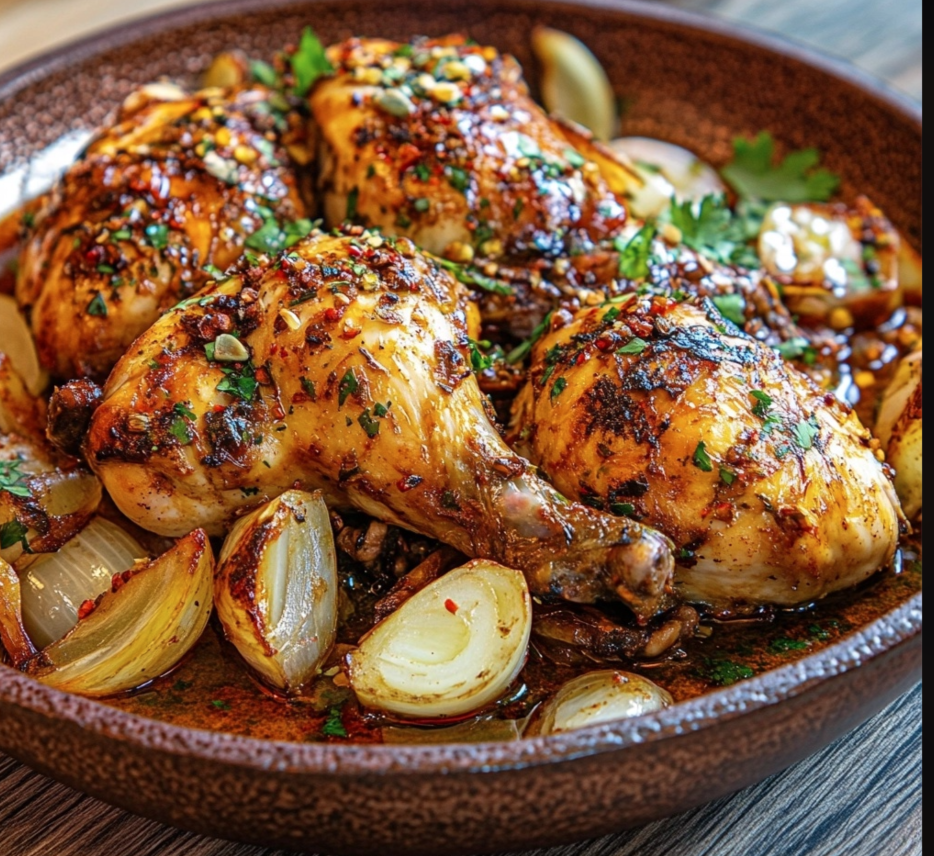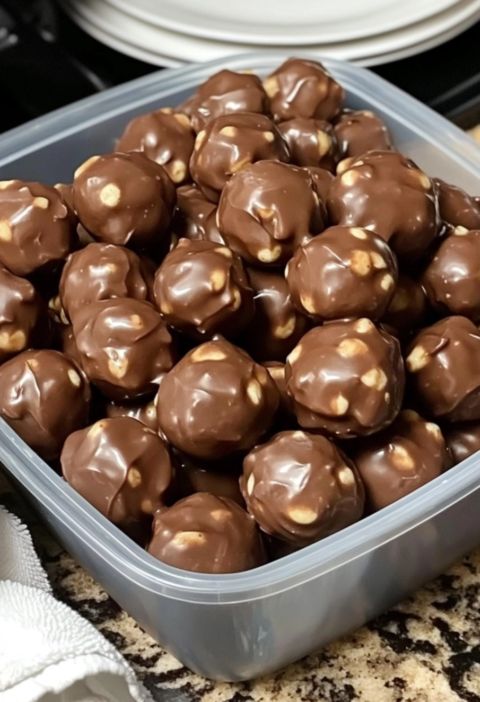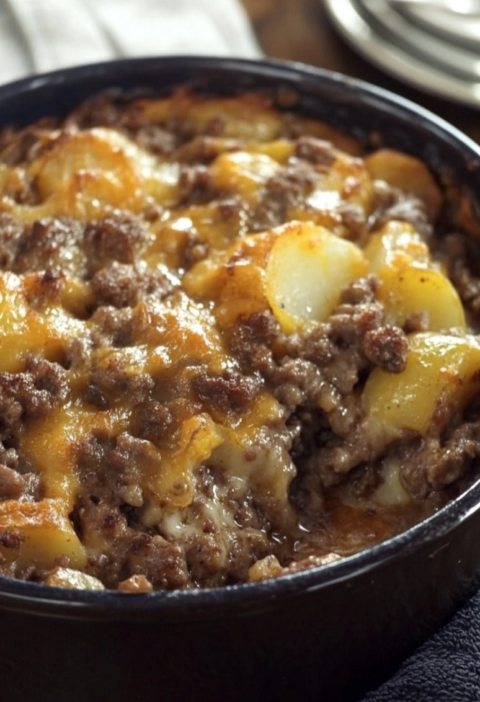In Palestine, a dish named Palestinian Musakhan Chicken is a true cultural gem. It’s celebrated across the region for its rich flavors and homey feel. This dish is a perfect blend of Palestine’s heritage and a warm, comforting meal.
The dish’s star is the tender chicken, marinated in a mix of spices that highlight Palestinian cuisine. The chicken is paired with sumac and caramelized onions. Together, they create a flavor symphony that delights the taste buds.
Exploring Palestinian Musakhan Chicken takes us into a world where food traditions are a big part of life. This dish not only feeds the body but also the soul. It’s a testament to Palestine’s vibrant cultural heritage.
Key Takeaways
- Musakhan is a beloved traditional dish in Palestinian cuisine, featuring tender chicken, sumac, and caramelized onions.
- The dish’s rich flavors and cultural significance make it a culinary icon in the region.
- Musakhan’s origins and preparation techniques are deeply rooted in the heritage and celebrations of the Palestinian people.
- Mastering the perfect balance of ingredients, cooking methods, and presentation is essential for achieving authentic Musakhan.
- Musakhan’s versatility allows it to be served as a main course or as part of a larger traditional Palestinian meal.
The Rich Heritage of Palestinian Musakhan: A Cultural Icon
Musakhan is a beloved dish in Palestinian culture. It’s a mix of Middle Eastern flavors that shows the Palestinian people’s rich food history. This dish is a symbol of their vibrant food traditions.
Origins and Cultural Significance
Musakhan’s roots go back to ancient Palestine. It’s made with roasted chicken, sumac, and caramelized onions. It’s more than food; it’s a celebration of Palestinian culture and history.
Traditional Family Gatherings and Celebrations
Musakhan is special in Palestinian homes. It’s often the main dish at family events. The smell of Musakhan brings everyone together, sharing in its rich flavors and traditions.
At weddings, religious events, or family dinners, Musakhan is always there. It connects Palestinians to their heritage and brings pride to their culture.
“Musakhan is not just a dish, but a tapestry that weaves together the threads of our cultural identity, preserving the essence of our Palestinian culinary heritage for generations to come.”
Essential Ingredients That Make Authentic Musakhan Special
To make the perfect Palestinian musakhan, you need a mix of special ingredients. At its core, the dish combines tender sumac-spiced chicken, caramelized onions, and Palestinian olive oil. Each part adds to the dish’s unique taste and texture.
The dish starts with the chicken. It’s important to use high-quality, free-range chicken. This ensures the meat is juicy and full of flavor. Sumac, a tangy spice from the area, gives musakhan its special taste.
Caramelized onions are also key. They add a sweet and savory flavor that goes well with the chicken. Cooking the onions slowly makes them golden and adds depth to the dish.
Lastly, Palestinian olive oil brings everything together. It adds a rich taste and a touch of the region’s culture. This oil makes the dish feel luxurious and connects it to Palestine’s farming traditions.
By using these key ingredients, you can truly experience the essence of Palestinian musakhan. It lets the flavors come alive and takes you on a journey through Palestinian culture.
The Art of Selecting and Preparing Quality Chicken for Musakhan
Creating the perfect Palestinian Musakhan Chicken starts with choosing and preparing the chicken. The dish’s tender texture and sumac flavor depend on the chicken’s quality.
Choosing the Perfect Cut
For a true sumac-spiced chicken taste, use bone-in, skin-on chicken thighs or drumsticks. These cuts offer a richer flavor and a juicy texture. The dark meat of thighs and drumsticks is perfect for slow cooking, making each bite full of flavor.
Traditional Marination Techniques
The marinade is key in traditional Palestinian Musakhan Chicken. It mixes spices like sumac, onions, and olive oil into the chicken. Marinating for hours or overnight lets the flavors soak into the meat, enhancing the taste.
Proper Cleaning and Preparation
Before cooking, make sure the Palestinian Musakhan Chicken is clean and ready. Remove excess fat and skin, and rinse the chicken under cold water. This step ensures a clean flavor that highlights the dish’s other ingredients.
By carefully selecting and preparing the chicken, you’ll make a delicious Palestinian Musakhan Chicken. It celebrates Palestine’s rich culinary traditions.
Palestinian Musakhan Chicken – Palestine, musakhan, chicken, sumac, onions
Dive into Palestine’s rich food culture with the amazing Palestinian Musakhan Chicken. This dish, flavored with sumac and caramelized onions, shows off the area’s vibrant tastes.
The dish’s success comes from its perfect mix of ingredients. The star is the juicy Palestinian Musakhan Chicken. It shows the country’s skill in cooking poultry.
We start with top-notch chicken, marinated in special spices. These spices make every bite rich and complex. Sumac, a tangy spice, is key to Musakhan’s flavor and color.
The dish also features caramelized onions. They add sweetness and a smooth texture. Together, the chicken, sumac, and onions create a dish that looks great and tastes amazing.
| Key Ingredients | Role in Musakhan Chicken |
|---|---|
| Palestinian Chicken | The star of the dish, providing the foundation for the rich, spiced flavors. |
| Sumac | A unique spice that lends its tangy, vibrant hue and aroma to the chicken. |
| Caramelized Onions | Adds a sweet, silky texture that complements the sumac-spiced chicken. |
Palestinian Musakhan Chicken is perfect for family meals or big celebrations. Its flavors and looks will impress everyone who tries it.
Mastering the Sumac-Onion Mixture: Key to Perfect Flavor
The secret to the mouthwatering sumac-spiced chicken of Palestinian Musakhan lies in the perfect balance of its aromatic spices and caramelized onions. This flavorful combination is the heart and soul of this iconic Middle Eastern dish. It infuses it with the quintessential taste of the region.
Proper Onion Caramelization
Caramelizing the onions is a crucial step. It transforms their flavor, bringing out their natural sweetness. This creates a rich, velvety texture that complements the caramelized onions effortlessly.
To achieve this, we slowly cook the onions over medium-low heat. We stir frequently until they develop a deep, golden-brown hue. They become melt-in-your-mouth consistency.
Balancing Sumac Proportions
- The intensely tangy and vibrant Middle Eastern flavors of sumac are the perfect foil to the sweetness of the caramelized onions.
- Striking the right balance between the two is crucial. Too much sumac can overwhelm the dish, while too little will result in a muted flavor profile.
- We carefully measure and adjust the sumac. We ensure it enhances the overall taste without overpowering the other ingredients.
“The secret to the perfect Musakhan lies in the seamless harmony between the sumac and the caramelized onions. It’s a delicate dance that transforms the dish into a true culinary masterpiece.”
Traditional Taboon Bread: The Foundation of Musakhan
In Palestinian cuisine, taboon bread is a treasure. It’s not just a side dish but the base of Musakhan. Made with love, it shows Palestine’s rich food history.
Taboon bread’s story begins with its baking. It was cooked in a taboon oven, giving it a smoky taste. The dough was stretched and slapped onto the oven walls, making it chewy and tasty.
Even without a traditional oven, we can still make taboon bread. Home cooks use cast-iron skillets or ovens to get that smoky flavor. The goal is to get that intense heat from the old taboon ovens.
| Taboon Bread Baking Methods | Pros | Cons |
|---|---|---|
| Traditional Taboon Oven | Authentic smoky flavor, charred crust | Limited availability, labor-intensive |
| Cast-Iron Skillet | Achieves high heat, replicates char | Requires careful technique, smaller batches |
| Conventional Oven | Convenient, accessible | Lacks authentic taboon flavor and texture |
The aim is always to make a strong, tasty taboon bread. It’s the base for Musakhan’s chicken, sumac-onion mix, and olive oil. With creativity and true techniques, you can make Palestinian cuisine your own.
Step-by-Step Cooking Process for Authentic Results
Learning to make the perfect Palestinian Musakhan Chicken is a detailed process. It involves controlling temperatures and layering ingredients carefully. Each step is important to get the right flavors and textures. Follow these steps to make your Palestinian Musakhan Chicken truly authentic.
Temperature Control Tips
Keeping the right temperature is crucial for Palestinian Musakhan Chicken. Preheat your oven to 375°F (190°C). This temperature helps the chicken cook evenly and the onions and sumac to caramelize perfectly.
Layering Techniques
The key to a great Palestinian Musakhan Chicken is in how you layer it. Start by placing the chicken in a baking dish or on a baking sheet. Then, spread the caramelized onion and sumac mixture over the chicken. This method not only boosts the flavor but also makes the dish look beautiful.
- Arrange the chicken pieces in a baking dish or on a rimmed baking sheet.
- Evenly distribute the caramelized onion and sumac mixture over the chicken.
- Drizzle a generous amount of premium Palestinian olive oil over the layered dish.
- Bake the Palestinian Musakhan Chicken in the preheated oven until the chicken is cooked through and the onions are deeply caramelized, approximately 45-60 minutes.
- Serve the Palestinian Musakhan Chicken hot, accompanied by the traditional taboon bread and your choice of side dishes.
By using these temperature control tips and layering techniques, you’ll make a delicious Palestinian Musakhan Chicken. It will take you on a culinary journey to Palestine.
The Role of Premium Palestinian Olive Oil
Premium Palestinian olive oil is at the core of Musakhan’s true essence. This golden liquid, from Palestine’s fertile lands, is more than just a cooking ingredient. It celebrates the region’s culinary heritage and the distinct flavors of Middle Eastern cuisine.
Choosing high-quality Palestinian olive oil for Musakhan is not just practical. It’s a deliberate choice that honors the dish’s cultural significance. The oil’s unique aroma and robust flavor blend perfectly with sumac, onions, and chicken. Together, they create a harmonious symphony of Palestinian culinary heritage.
| Characteristic | Premium Palestinian Olive Oil | Regular Olive Oil |
|---|---|---|
| Flavor Profile | Robust, peppery, and slightly fruity | Mild and neutral |
| Aroma | Intense, with notes of freshly crushed olives | Minimal or muted |
| Acidity Level | Low, typically less than 0.8% | Higher, often exceeding 1% |
| Nutrient Content | Rich in antioxidants and healthy fats | Lower in beneficial nutrients |
The choice of Palestinian olive oil in Musakhan goes beyond cooking. It connects the dish to the land and people who have cared for this precious resource for generations. The Middle Eastern flavors in Musakhan are elevated by the oil’s unique qualities. This makes Musakhan a true reflection of the region’s culinary heritage.
Garnishing and Presentation Techniques
Making Palestinian Musakhan chicken look good is key to a great meal. The right garnish and presentation show off the dish’s beauty and the rich history of Palestinian food.
Pine Nut Preparation
Pine nuts, or sabanikh, are a favorite topping for Musakhan. They add a nice crunch and a nutty taste. We toast them until they’re golden and fragrant.
This simple step makes the dish even better. It pairs well with the sumac chicken and sweet onions.
Final Touch Arrangements
- Put the Musakhan chicken on a big, shallow plate. Make sure it’s spread out evenly.
- Spread the toasted pine nuts over the chicken. This makes a nice contrast with the meat.
- Drizzle some top-quality Palestinian olive oil over it. This lets the flavors mix with the chicken and bread.
- Top it off with fresh parsley or mint. This adds color and a fresh smell.
By using these traditional ways to garnish and present, you’ll make your Musakhan chicken a masterpiece. It honors the traditional Palestinian dish and the Palestinian cuisine it comes from.
Perfect Side Dishes and Accompaniments
When enjoying Palestinian Musakhan, finding the right side dishes is key. We’ll look at both traditional and modern options. These can enhance the taste of the chicken, sumac, and onions.
Mujadara is a classic side dish that goes well with Musakhan. It’s made of rice, lentils, and caramelized onions. The lentils’ earthy taste and the onions’ sweetness contrast nicely with the Musakhan’s richness.
If you prefer something lighter, try an Arab salad. It’s a mix of tomatoes, cucumbers, parsley, and lemon dressing. This salad offers a refreshing contrast to the Musakhan.
For something new, consider creamy hummus with Palestinian olive oil and sumac. It’s a smooth, creamy option that pairs well with Musakhan. Roasted sweet potatoes with za’atar spices also add a sweet and vibrant touch.
FAQ
What is Palestinian Musakhan Chicken?
Palestinian Musakhan Chicken is a beloved dish in Palestinian cuisine. It has chicken cooked with sumac and onions. It’s served on taboon bread, a key part of Palestinian food.
What are the key ingredients in Musakhan?
Musakhan’s main ingredients are chicken, sumac, onions, olive oil, and taboon bread. These ingredients create its unique flavor.
What is the cultural significance of Musakhan in Palestine?
Musakhan is deeply rooted in Palestinian culture. It’s served at family gatherings and special events. It showcases Palestine’s rich culinary traditions.
How do I choose the best chicken for Musakhan?
For authentic Musakhan, choose bone-in chicken parts. They offer the best flavor and tenderness. Clean and marinate the chicken properly for the best taste.
What is the role of sumac and onions in Musakhan?
Sumac and onions are Musakhan’s core. They give the dish its unique taste. Learning to caramelize onions and use sumac correctly is key.
Why is taboon bread important in Musakhan?
Taboon bread is essential for Musakhan. It supports the chicken and onions. Together, they create the authentic Musakhan experience.
How can I ensure I cook Musakhan correctly at home?
To cook Musakhan right, focus on the cooking process. Control the temperature and pay attention to detail. Follow the instructions and tips for the best results.
What is the role of premium Palestinian olive oil in Musakhan?
Palestinian olive oil is crucial for Musakhan’s authenticity. It enhances the dish’s taste and aroma. Using authentic oil is key to the dish’s true essence.
How should Musakhan be garnished and presented?
Garnish Musakhan with pine nuts for a nice crunch. Arrange the dish attractively to showcase its heritage. This enhances the dining experience.
What are some traditional side dishes that complement Musakhan?
Musakhan goes well with Palestinian dishes like fattoush salad and hummus. These sides complete the authentic Palestinian meal.






